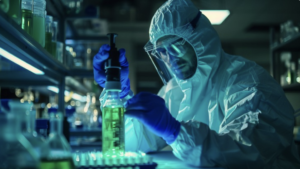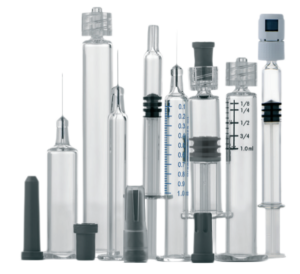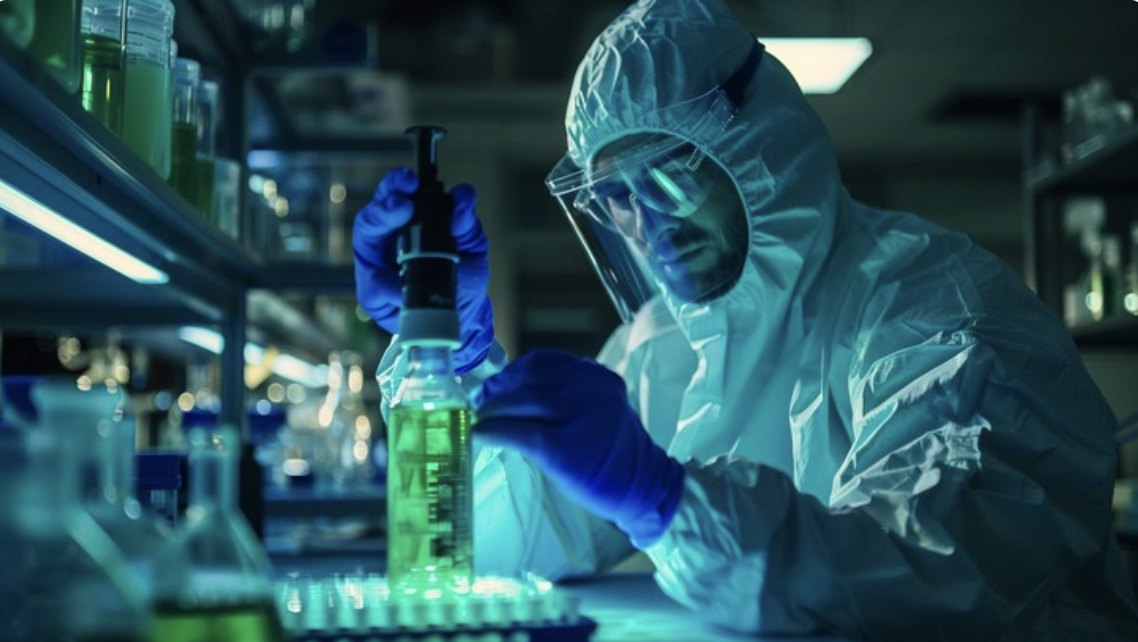
Glass syringes are valuable tools in the field of chemistry, often chosen for their chemical resistance, precision1, and reusability. Unlike plastic syringes, glass syringes can handle harsh chemicals and solvents without degrading, making them ideal for sensitive laboratory work. In this article, we’ll explore the various uses of glass syringes in chemistry and why they are a staple in many laboratories.
Glass syringes are critical in handling precise measurements of reagents, assisting in chromatography, and transferring reactive chemicals. Their transparency and chemical inertness provide a level of control that plastic alternatives cannot match.
While plastic syringes are often disposable and convenient, glass syringes offer a higher degree of reliability for specialized chemical processes. Here are some of the primary applications of glass syringes in chemistry:
Glass syringes are highly valued for their precision in chemical experiments.True
Glass syringes allow for accurate dosing and measurements, which is essential for achieving reliable results in chemistry.
Glass syringes are easily degraded by most solvents used in chemistry.False
Glass syringes are chemically inert and resistant to degradation by most solvents, making them ideal for handling aggressive chemicals in chemistry.
How Are Glass Syringes Used for Precise Measurement and Dosing?
One of the fundamental uses of glass syringes in chemistry is for precise measurement and dosing of liquids. Glass syringes allow chemists to measure exact quantities of reagents, which is essential when working with reactions that require strict stoichiometric control. This accuracy is particularly useful in fields such as analytical chemistry, where even minor deviations in quantity can affect experimental outcomes.
Glass syringes offer precise control over reagent dosing, minimizing error in measurements. Unlike plastic syringes, they do not interact with chemical solvents, which is crucial for maintaining sample integrity.
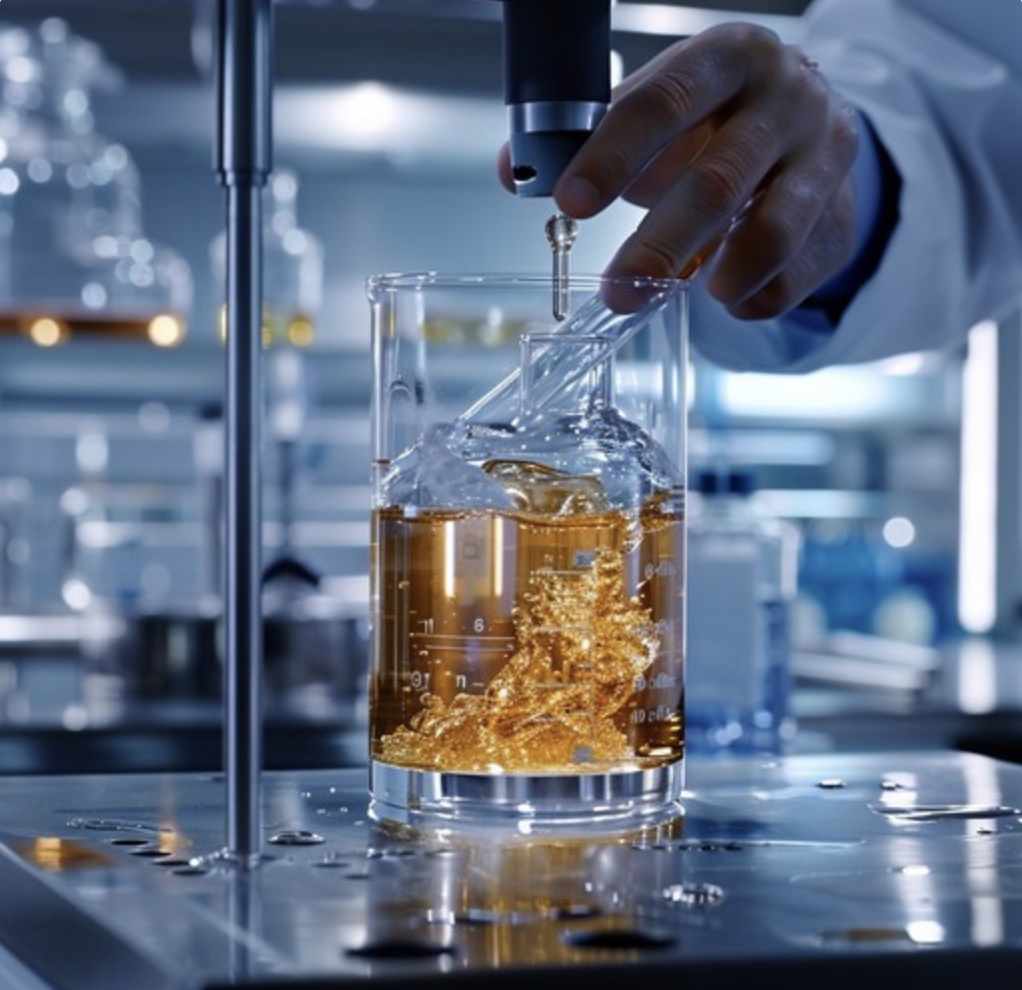
Accurate Volume Measurement with Glass Syringes
Glass syringes are widely used in laboratory and medical settings due to their ability to deliver precise and reliable measurements of liquids. The transparency of glass allows for easy visualization of the liquid's meniscus, which is crucial for accurate volume reading. When using a glass syringe, the liquid's meniscus is observed at eye level to avoid parallax errors. This precise measurement ensures that the right amount of liquid is administered, making glass syringes ideal for tasks like preparing medications or conducting experiments that require exact quantities of substances. Their high resistance to chemical reactions and wear ensures the measurements remain accurate over time, even with frequent use.
Enhanced Control and Dosing Consistency
One of the key benefits of glass syringes is the exceptional control they provide during dosing. Their fine graduation markings, often in very small increments, allow for precise adjustments in the amount of substance being administered. The smooth inner surface of the glass ensures that the liquid flows easily and evenly, minimizing the chances of air bubbles or inconsistent dosing. In medical applications such as insulin injections or administering vaccines, this level of control reduces the risk of human error, ensuring consistent and accurate dosing for patients. In laboratory research, this consistent delivery of liquids is vital for experiments where even minor variations in volume could skew results.
Durability and Chemical Compatibility for Sensitive Applications
Glass syringes are particularly valued for their durability and chemical compatibility. Unlike plastic syringes, which can react with certain substances, glass is inert and does not interfere with the composition of the fluids being measured or dispensed. This makes them ideal for precise dosing in applications involving highly sensitive chemicals or pharmaceuticals. Glass syringes are resistant to corrosion, making them suitable for long-term use without degradation of their measurement capabilities. Whether in high-precision laboratory experiments or critical medical applications, the durability and chemical compatibility2 of glass syringes ensure that measurements remain accurate and reliable, even when handling harsh or corrosive substances.
Glass syringes prevent contamination when measuring and dosing reactive chemicals.True
Glass is chemically inert and does not react with most substances, which helps maintain the purity of reactive chemicals during dosing.
Glass syringes cannot be used for precise dosing due to frequent air bubbles.False
Glass syringes actually minimize air bubbles due to their smooth surface, providing more control over precise dosing compared to many alternatives.
How Are Glass Syringes Used in Chromatography Applications?
In chromatography, particularly in gas and liquid chromatography, glass syringes are commonly used to inject samples into chromatographs. Their precision ensures accurate sample volume delivery, which is essential for obtaining reliable results in these sensitive analytical techniques. Additionally, their transparency allows chemists to visually inspect samples before injection.
Chromatography often requires exact sample injection. Glass syringes provide this precision, reducing the risk of contamination and enabling accurate, reproducible results.
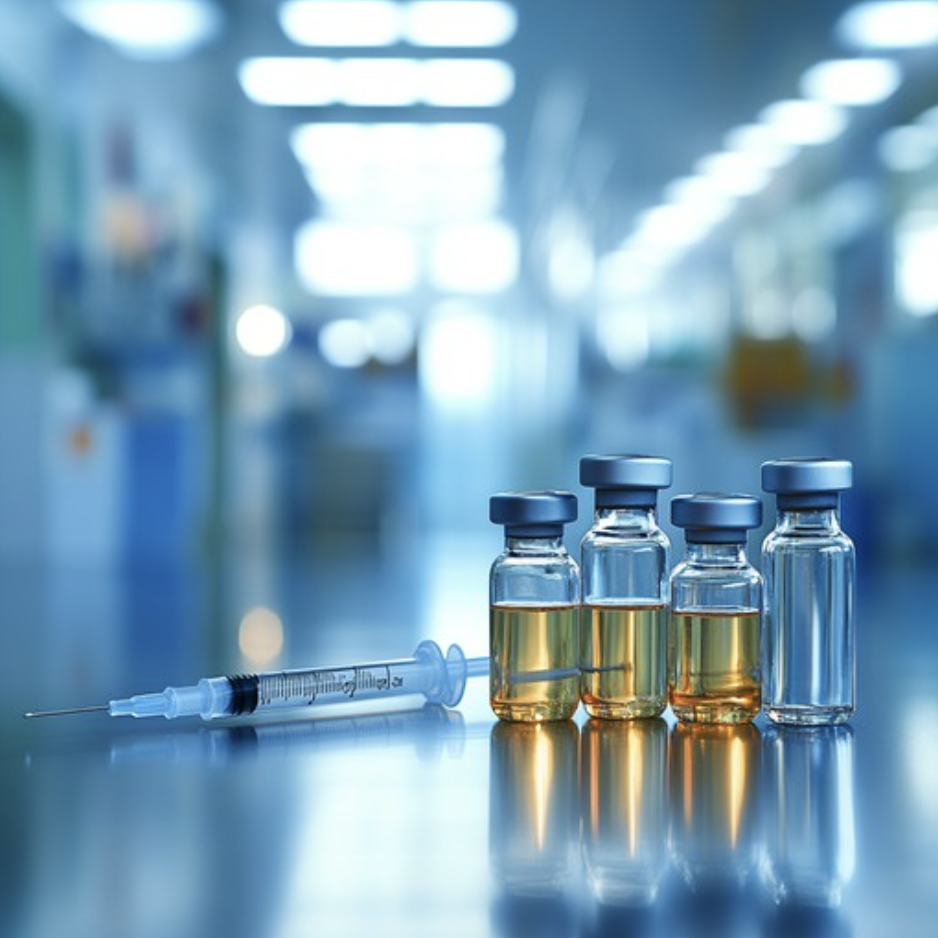
Precision in Sample Injection: Ensuring Accurate Analytical Results
In chromatography, the accuracy of sample injection is critical to achieving reliable analytical results. Glass syringes excel in this application because of their precise volume markings and ability to deliver exact quantities without risk of contamination from plastic materials. This precision is essential in both gas chromatography (GC) and liquid chromatography (LC), where slight variations in sample volume can impact peak intensities and resolution. By using glass syringes, chromatographers can confidently inject samples with minimal risk of errors, leading to more reproducible and trustworthy data.
Chemical Compatibility with Solvents and Sample Integrity
Glass syringes are highly valued in chromatography for their chemical resistance, particularly when working with volatile or aggressive solvents like acetone, methanol, or hexane. Many solvents used in chromatography can degrade plastic, leading to potential contamination or leaching of plasticizers into the sample. Glass syringes prevent this risk, ensuring that sample integrity is maintained throughout the analysis. This compatibility is especially important when dealing with trace analysis, where any contamination, even at low levels, can compromise the results. Glass syringes thus offer an ideal solution for chemists aiming to maintain high standards of purity in their samples.
Visual Monitoring and Precise Control of Sample Loading
Glass syringes allow chromatographers to visually monitor the sample before injection, which can be particularly advantageous in applications requiring careful observation of sample clarity, color, or phase separation. The transparent nature of glass enables precise control over the loading process, allowing technicians to detect any impurities or bubbles in the sample before it enters the chromatography column. This visual verification step helps prevent potential issues during analysis, such as baseline noise or contamination, thus improving overall data quality and minimizing potential instrument downtime.
Glass syringes are commonly used in chromatography due to their precision in sample injection.True
Glass syringes allow for exact volume measurements and precise injection, which is essential for reliable results in chromatography.
Plastic syringes are preferred over glass syringes in chromatography because they prevent contamination.False
Plastic syringes can introduce contaminants, while glass syringes are chemically inert, reducing the risk of contamination and ensuring sample purity in chromatography.
Why Are Glass Syringes Ideal for Safe Handling of Sensitive Samples?
When working with biological or volatile samples that are sensitive to environmental factors, glass syringes offer a safe and controlled way to transfer these substances. The non-porous nature of glass prevents sample absorption, ensuring the sample's full transfer without material loss. This feature is particularly valuable in biochemistry and pharmaceutical research, where maintaining sample concentration is crucial.
Glass syringes are non-porous, which helps in preserving sample integrity during transfers. This characteristic is essential when handling valuable or delicate samples.

Non-Reactive Properties Preserve Sample Purity
Glass syringes are highly inert, meaning they do not interact chemically with the substances they contain. This non-reactive quality3 makes them ideal for handling sensitive samples that are easily affected by contamination or chemical reactions. Many plastic syringes, by contrast, can leach plasticizers or other additives into samples, especially when dealing with solvents or biological compounds. By using glass syringes, chemists and researchers can maintain the original composition of sensitive samples, ensuring that the analysis results are accurate and the sample’s integrity remains uncompromised.
Transparency for Visual Inspection and Quality Control
The transparency of glass syringes allows technicians to visually inspect the sample for any impurities, bubbles, or discoloration before it is transferred or injected. This visual access is essential when handling delicate biological samples, such as proteins or blood derivatives, where even minor impurities can impact analysis or reactions. This ability to check the sample visually ensures that only high-quality, contaminant-free samples are used in subsequent steps, enhancing reliability and reducing the risk of faulty experimental results due to compromised samples.
Ease of Sterilization for Cross-Contamination Prevention
Glass syringes can be easily sterilized, often at high temperatures, which is essential for maintaining sterile conditions when handling biological or reactive samples. Unlike certain plastics, which may degrade or release substances during sterilization, glass remains stable under heat and can be effectively autoclaved. This sterilization capability ensures that glass syringes can be reused safely without the risk of cross-contamination, making them ideal for labs and settings that handle sensitive samples across multiple applications. The ability to reliably sterilize glass syringes helps maintain a high standard of hygiene and sample purity across all uses.
Glass syringes are ideal for handling sensitive samples due to their non-reactive properties.True
Glass is chemically inert, which helps preserve the integrity of sensitive samples by preventing any unwanted reactions or contamination.
Glass syringes often absorb substances from sensitive samples, compromising sample integrity.False
Glass syringes are non-porous and do not absorb substances, making them suitable for safely handling and transferring sensitive samples without material loss.
How Do Glass Syringes Benefit from Reusability and Environmental Friendliness?
Glass syringes are reusable, making them an environmentally friendly option compared to disposable plastic syringes. With proper cleaning and sterilization, glass syringes can be used repeatedly without degrading, reducing laboratory waste and cost over time.
While the initial investment in glass syringes may be higher, their durability and reusability4 offer long-term savings, aligning with sustainable laboratory practices.

Long-Term Cost Efficiency Through Durability and Reusability
Glass syringes, unlike single-use plastic syringes, are designed for repeated use, providing significant cost savings over time. Made from durable borosilicate glass, they can withstand numerous uses and sterilization cycles without degrading. Although the initial investment may be higher, the longevity of glass syringes reduces the need for frequent replacements, which helps lower long-term costs for laboratories, medical facilities, and other users. This durability makes glass syringes a financially sustainable choice, especially in high-use environments where quality and longevity are essential.
Reduced Environmental Impact from Lower Waste Production
The reusability of glass syringes contributes directly to reduced environmental waste, addressing a major concern with single-use plastics. Each reuse of a glass syringe means one less plastic syringe discarded, which reduces the volume of plastic waste that may end up in landfills or require energy-intensive recycling processes. By switching to reusable glass syringes, laboratories and healthcare providers can take measurable steps toward environmental responsibility, minimizing their carbon footprint and supporting global efforts to reduce plastic waste and pollution.
Enhanced Sterilization Capabilities for Safe and Sustainable Use
Glass syringes can be sterilized through methods like autoclaving or dry heat, allowing for safe reuse without compromising hygiene. Unlike certain plastics that may warp, release toxins, or deteriorate under high temperatures, glass maintains its structural integrity and cleanliness. This ease of sterilization makes glass syringes ideal for environments where contamination prevention is crucial, such as medical and research labs. Additionally, the reusability facilitated by sterilization aligns with sustainable practices, as each reuse minimizes resource consumption and decreases overall environmental impact.
Glass syringes are reusable and environmentally friendly.True
Glass syringes can be cleaned, sterilized, and reused multiple times, reducing waste compared to single-use plastic syringes.
Plastic syringes offer better precision than glass syringes for laboratory work.False
Glass syringes provide superior precision and are preferred for laboratory work due to their ability to deliver accurate measurements without chemical interaction.
Conclusion
Why Are Glass Syringes Important in Chemistry?
Glass syringes play an irreplaceable role in chemistry laboratories, from precise measurement to safe handling of reactive compounds. Their compatibility with a wide range of chemicals, ability to withstand high temperatures, and reusability make them a reliable and sustainable choice. For any chemist or lab technician looking to maintain accuracy and sample integrity5, glass syringes are a valuable tool worth the investment.
-
Learn The term "precision in dosing" is central to explaining why glass syringes are crucial in chemistry, particularly when exact measurements are required. The accuracy of glass syringes is emphasized in scientific settings like pharmaceutical research or analytical chemistry, where minor variations in volume can impact results.... ↩
-
Learn The keyword "chemical compatibility" highlights the resistance of glass to chemical degradation, a key reason why it’s preferred over plastic syringes in labs dealing with strong or volatile substances. This allows for safe handling of reagents without contaminating or altering the sample. ↩
-
Learn The "non-reactive properties" of glass syringes make them ideal for handling sensitive or volatile compounds in chemistry. These properties prevent unwanted chemical interactions, maintaining the purity and integrity of the sample. ↩
-
Explore Glass syringes are reusable, which makes them a more sustainable choice compared to disposable plastic syringes. This is relevant in chemistry labs focused on reducing waste and following environmentally responsible practices.... ↩
-
Learn "Sample integrity" is emphasized to showcase how glass syringes help preserve the composition of sensitive samples, such as biological compounds or trace chemicals, during transfer. This is crucial in maintaining reliable experimental outcomes. ↩

